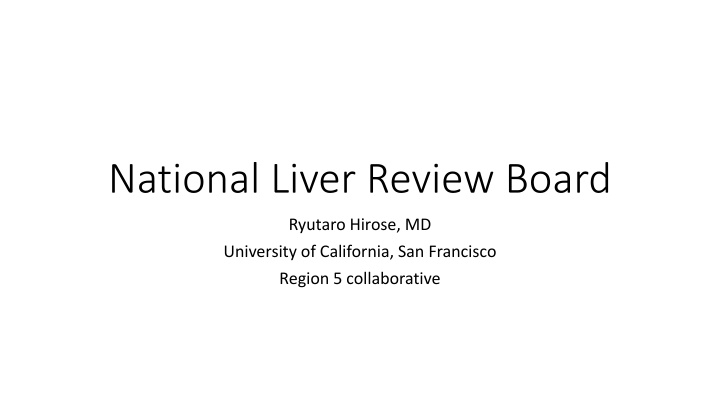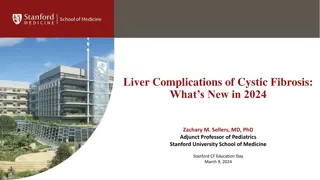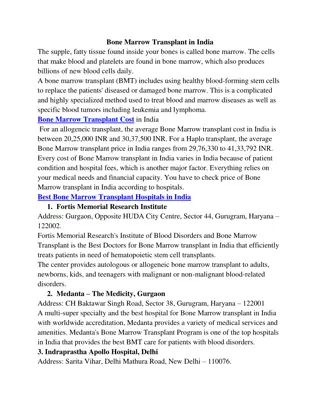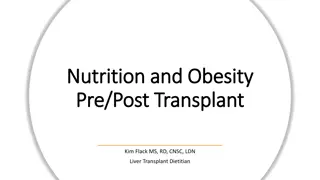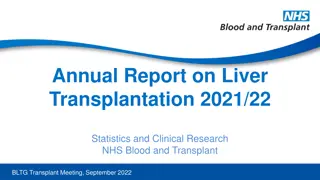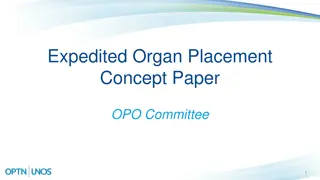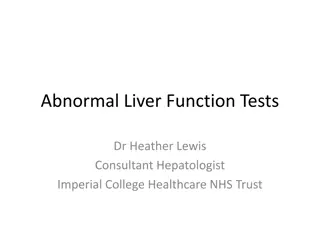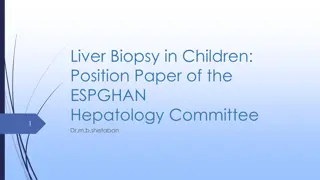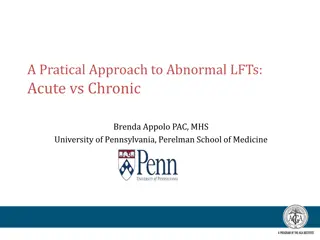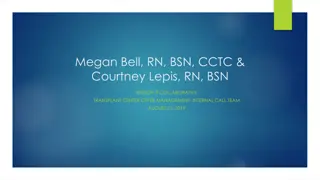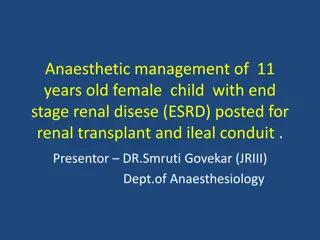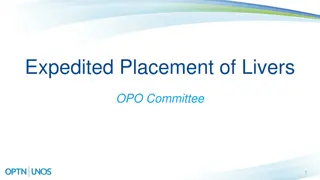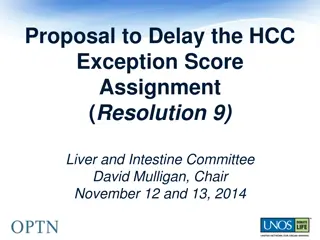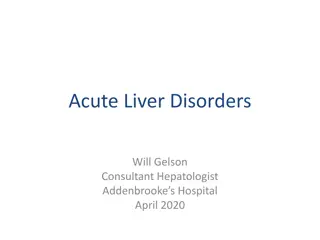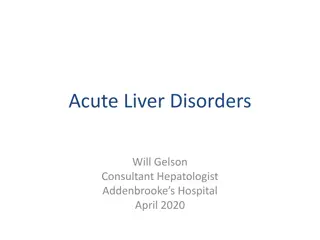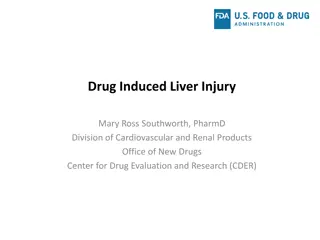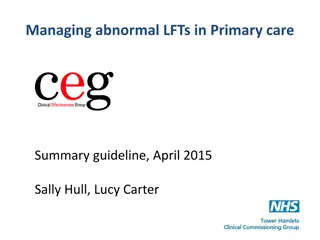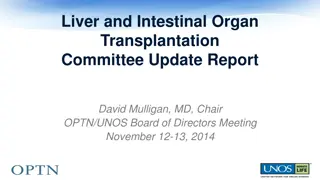National Liver Review Board: Solving Inconsistencies in Transplant Approvals
The National Liver Review Board, led by Dr. Ryutaro Hirose at the University of California, San Francisco, aims to address inconsistencies in liver transplant applications and approvals across UNOS regions. The board focuses on eliminating disparities in acceptance rates, refining approval practices for HCC cases, and streamlining the MELD escalator system. By establishing three distinct review boards and implementing a supermajority threshold for acceptance, the NLRB aims to ensure fair and equitable decision-making in liver transplant evaluations.
Download Presentation

Please find below an Image/Link to download the presentation.
The content on the website is provided AS IS for your information and personal use only. It may not be sold, licensed, or shared on other websites without obtaining consent from the author.If you encounter any issues during the download, it is possible that the publisher has removed the file from their server.
You are allowed to download the files provided on this website for personal or commercial use, subject to the condition that they are used lawfully. All files are the property of their respective owners.
The content on the website is provided AS IS for your information and personal use only. It may not be sold, licensed, or shared on other websites without obtaining consent from the author.
E N D
Presentation Transcript
National Liver Review Board Ryutaro Hirose, MD University of California, San Francisco Region 5 collaborative
Purpose of NLRB solving problems The problems: Inconsistent application and approval behaviors in the 11 UNOS regions eliminate inconsistency (acceptance varied between 75-93% across regions) Differences in practices approval for HCC beyond criteria E.g Approvals for ascites Differences in rates of transplant for exception vs non exception rates by region (29->50% of transplant in exception patients) MELD escalator resulting in MELD inflation eliminate the escalator Awarding the same # of points for exception patients in the current environment of geographic inequity meant some exception patients get transplanted right away, others wait >1-2 years with escalator Stable patients escalate above lab MELD patients who are sicker
NLRB Three boards HCC Adult non HCC Pediatric Threshold for acceptance is a supermajority ( 4 of 5 reviewers must accept) Different appeal process (appeal review team)
NLRB makeup Review Board - NLRB - Adult HCC Review Board Member Review Board Alternate Rep 110 Review Board - NLRB - Adult HCC Review Board - NLRB - Adult Other Diagnosis Review Board - NLRB - Adult Other Diagnosis Review Board - NLRB - Pediatrics 109 Review Board Member Review Board Alternate Rep Review Board Member Review Board Alternate Rep 110 106 55 Review Board - NLRB - Pediatrics 56
Growing pains of NLRB Centers inappropriate submissions for exceptions they may have gotten used to getting accepted under the RRB Reviewers inappropriate declines for submissions clearly within policy or guidelines Editorial comments Denials not based in policy Liver transplant programs Review the denials RN coordinators should document MD (content expert/HCC board member) should review criterion and see if denial is consistent with policy Collate and document the rational for decline and to justify the approval to document a wrong decision by the NLRB
Consequences/problems that still exist and need to be addressed HCC and other exceptions all stacked up at MMAT-3 Worse for patients in long wait regions HCC patients not stratified With each other With respect to lab MELD patients
UNOS liver committee plans Review of the decisions made by individual reviewers Focused and general educational interventions Julie Heimbach, MD past chair UNOS liver committee, chair of UNOS NLRB Elizbeth Miller, JD UNOS policy analyst for UNOS liver committee
